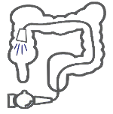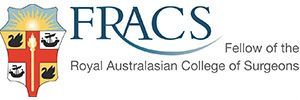Endoscopy and Colonoscopy
Endoscopy
What is an Endoscopy?
Endoscopy is a minimally invasive procedure that allows visualisation of the interior of organs, such as the digestive tract, respiratory system, and other body cavities. The endoscope is a flexible or rigid tube equipped with a camera and light source at its tip. This camera transmits real-time images to a monitor, allowing doctors to examine and assess the organ.
Who is a Candidate for Endoscopy?
Here are some common conditions where endoscopy may be recommended:
- Gastrointestinal Issues: Patients with persistent abdominal pain, difficulty swallowing, chronic heartburn, gastrointestinal bleeding, FOBT test positives, or unexplained weight loss may be candidates for gastroscopy or colonoscopy.
- Diagnostic Purposes: Endoscopy can help obtain tissue samples (biopsies) for further analysis, aiding in diagnosing conditions like cancer or inflammatory diseases.
Types of Endoscopy
At Hunter Weight Loss, we perform
- Colonoscopy: Examines the large intestine.
- Gastroscopy (esophagogastroduodenoscopy): Examines the oesophagus, stomach, and duodenum.
We also perform EMR for larger colonic polyps and Barrett’s oesophagus.
Preparation Before an Endoscopy
Before undergoing an endoscopy, you'll typically receive specific instructions from your doctor. Here are some general guidelines:
- Consultation: You will discuss your medical history and the reasons for the endoscopy with your doctor.
- Pre-operative instructions: You will be given specific instructions regarding fasting, medications, and bowel preparations.
- Anaesthesia: You may receive intravenous sedation to make you relaxed and sleepy. You will not be awake for the test and usually won’t remember the process.
What to Expect After an Endoscopy?
- Recovery: You will be monitored in a recovery room until the anaesthesia wears off.
- Post-procedure instructions: You will be given specific instructions regarding diet, restarting medications and follow-up appointments.
- Discharge: Almost all patients go home on the same day as their procedure.
Colonoscopy
What is a Colonoscopy?
A colonoscopy is an endoscopic procedure that examines the colon's lining, also known as the large intestine.
It is a vital tool in preventing and early detection of colon cancer, Australia's third most common cancer.
A colonoscopy is performed to detect irregularities such as
- inflamed tissue,
- ulcers, and
- abnormal growths.

Why Have a Colonoscopy?
Specifically, a colonoscopy helps in the diagnosis of
- colorectal cancer,
- bowel disorders and abdominal pain,
- anal bleeding.
Who is a Candidate for Colonoscopy?
Colonoscopy may be recommended to screen for bowel cancer, removal and surveillance of polyps, investigation of symptoms and certain treatments.
How Long Does a Colonoscopy Take?
The procedure typically takes around 30 minutes to an hour to complete, depending on the length of your colon and whether any polyps or other abnormalities are detected.
Preparation Before a Colonoscopy
- Bowel preparation: You must follow a special diet and take bowel preparation medication before your procedure. Printed instructions will be provided at the time of your booking, or see instructions below.
- Fasting: It is important to follow the fasting instructions to ensure your bowel is clean enough for the test.
- Medications: You may be instructed to stop your blood-thinning or diabetes medications.
Bowel Preparation
Picoprep Bowel Preparation for Colonoscopy: Instructions
Before You Begin:
- Read the instructions on the packaging thoroughly before starting the bowel preparation.
- Follow the instructions given by your healthcare provider or as outlined in your prescription.
- If you have any concerns or questions, contact your healthcare provider.
- You may not drive for 24 hours following your colonoscopy; someone must take you home following your procedure.
Morning Colonoscopy
Two Days Before Your Colonoscopy
- Do not eat brown bread, high-fibre cereals, vegetables, fruit, and anything with seeds or nuts
- Aim to drink 2-3L of fluids throughout the day
Day Before Colonoscopy
- Diet:
- Consume a clear, liquid diet only. Avoid solid foods, dairy, and coloured liquids.
- Acceptable clear liquids include water, clear broths, black coffee, tea (no milk), clear sports drinks, and clear fruit juices without pulp (apple, white grape). Do not have red or purple drinks.
- Stay hydrated by drinking plenty of fluids throughout the day.
- Medication:
- Take any prescribed medications as directed by your healthcare provider.
- Inform your healthcare provider about any existing medical conditions or medications you are taking.
- PicoPrep
- 1st dose 4 pm
- Mix the contents of one sachet of PICOPREP in a glass (250 ml) of warm water and stir until dissolved. Drink mixture, followed by two glasses of clear fluids. If you feel nauseated, drink prep via a straw.
- 2nd dose at 7pm
- Mix & drink as above.
- 3rd dose at 9 pm
- Repeat as above.
- Continue drinking clear fluids up to bedtime.
Day of Colonoscopy
- Drink water only. Up to 200 mL per hour until 2 hours before your procedure.
- No Food
- Do not consume any food.
Afternoon Colonoscopy
Two Days before your colonoscopy
- Do not eat brown bread, high-fibre cereals, vegetables, fruit, and anything with seeds or nuts.
- Aim to drink 2-3L of fluids throughout the day.
Day Before Colonoscopy
- Diet:
- Have a light breakfast, avoiding the foods above, before 8am.
- Consume a clear liquid diet only after 8am. Avoid solid foods, dairy, and coloured liquids.
- Acceptable clear liquids include water, clear broths, black coffee, tea (no milk), clear sports drinks, and clear fruit juices without pulp (apple, white grape). Do not have red or purple drinks.
- Stay hydrated by drinking plenty of fluids throughout the day.
- Medication:
- Take any prescribed medications as directed by your healthcare provider.
- Inform your healthcare provider about any existing medical conditions or medications you are taking.
- PicoPrep
- 1st dose 6 pm
- Mix the contents of one sachet of PICOPREP in a glass (250 ml) of warm water and stir until dissolved. Drink mixture, followed by two glasses of clear fluids. If you feel nauseated, drink prep via a straw.
- 2nd dose at 9 pm
- Mix & drink as above.
- 3rd dose at 6 am
- Repeat as above.
Day of Colonoscopy
- 3rd dose at 6 am
Repeat as above.
Drink water only. Up to 200 mL per hour until 2 hours before your procedure.
- No Food :
- Do not consume any food.
General Tips
- Expect frequent bowel movements; stay near a bathroom.
- Stay hydrated with clear liquids to prevent dehydration.
- Wear comfortable clothing.
- Arrange for someone to drive you home after the procedure.
Remember, these instructions are general guidelines. Always follow the specific instructions provided by your healthcare provider. Contact your healthcare provider promptly if you have any concerns or experience severe discomfort.
After Your Colonoscopy
After your colonoscopy, the majority of patients go home the same day. There are usually no restrictions on activity, and most patients return to work the following day. Rehydrating yourself is important.
Risks and Complications with Colonoscopy
Colonoscopies are extremely safe, and complications of colonoscopies are very uncommon
As with any medical procedure, there are risks associated with colonoscopy. However, relatively low risks occur in a very small percentage of cases.
- Incomplete or inadequate examination
- Missed polyps
- A perforation occurs when the colonoscope punctures the wall of the colon. This is a rare but potentially serious complication that may require surgery to repair.
- Some people may experience an adverse reaction to the sedative used during the procedure, such as breathing problems or an allergic reaction.
Discussing the potential risks of colonoscopy with your surgeon before the procedure is essential. Your doctor will evaluate your medical history and risk factors to determine if a colonoscopy is best for you.
The benefits of detecting colon cancer early through colonoscopy generally outweigh the risks, but it's important to understand the potential complications before the procedure.






